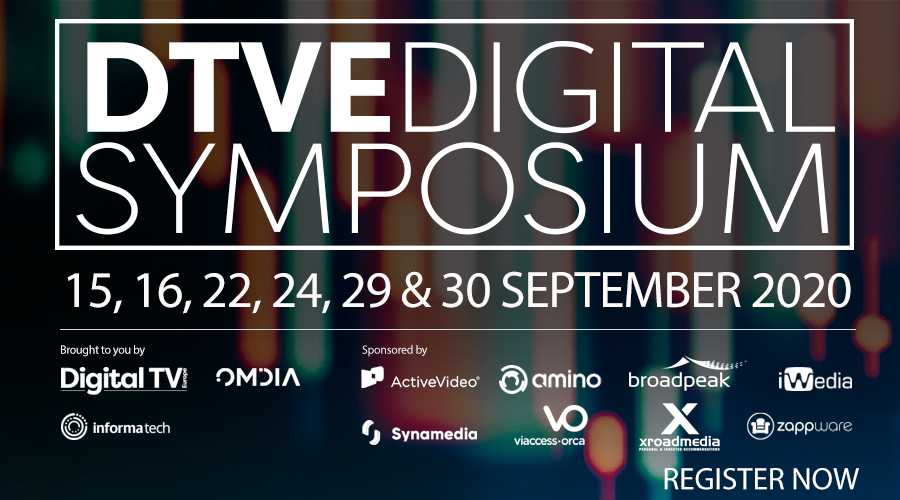
After more than 40 years of operation, DTVE is closing its doors and our website will no longer be updated daily. Thank you for all of your support.
Digital TV Europe launches the first ever DTVE Digital Symposium
The digital video business is facing unprecedented change, with the migration of consumers to streaming services, multiscreen devices and on-demand consumption. The pace of change has only accelerated as a result of the COVID-19 crisis.
Join DTVE in partnership with research powerhouse Omdia for a six-day symposium on some of the key trends driving change in digital video. Industry experts including video service providers, technologists and top analysts discuss some of the most pressing issues and opportunities confronting the industry, including:
- The ongoing migration of video consumption to streaming platforms and its impact on the industry.
- The rise of the aggregator model for service providers and technologies enabling this.
- The challenges facing service providers including the explosion in demand for bandwidth and the threat of illicit content consumption.
Symposium sessions:
Day One – Tuesday 15th September
10am BST: Android TV: enabling the operator as aggregator
Day Two – Wednesday 16th September
4.30pm BST: Cloud-based video: challenges and rewards
Day Three – Tuesday 22nd September
10am BST: Securing your revenue in the new age of video piracy
3pm BST: TV as an app: the choices facing service providers
Day Four – Thursday 24th September
3pm BST: The user experience: gateway to content
Day Five – Tuesday 29th September
3pm BST: The bandwidth challenge – alternatives for service providers
Day Six – Wednesday 30th September
10am BST: Android TV: Engaging the consumer; monetising the service
Register for a session here
Omdia Analyst presentations by:
Merrick Kingston, Associate Director, Research and Analysis, Media Delivery, Omdia
Andrew Young, Associate Director, Research and Analysis, Media Delivery, Omdia
John Kendall, Associate Director, Research and Analysis, Media Delivery, Omdia
Moderator: Stuart Thomson, Editor, Digital TV Europe


